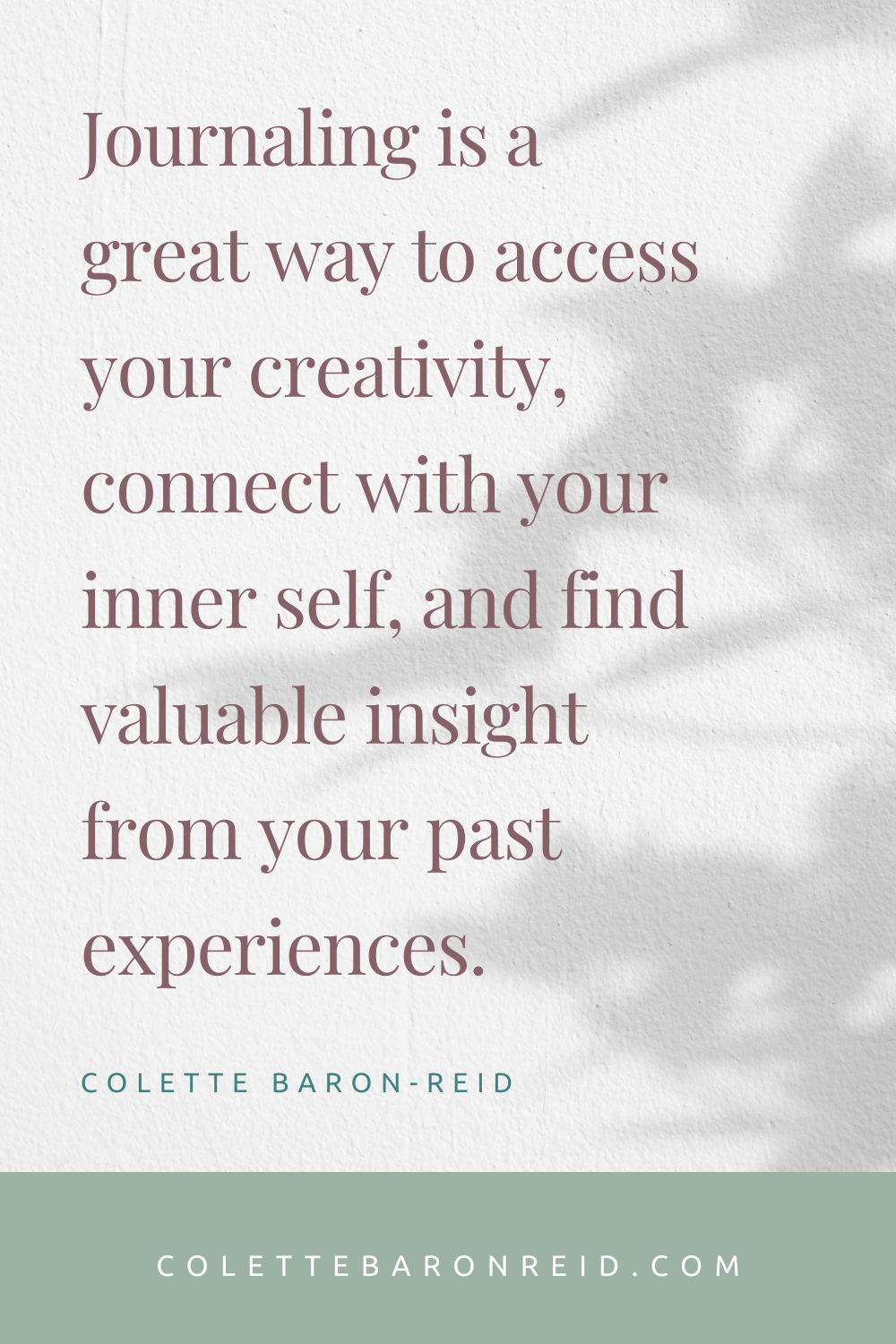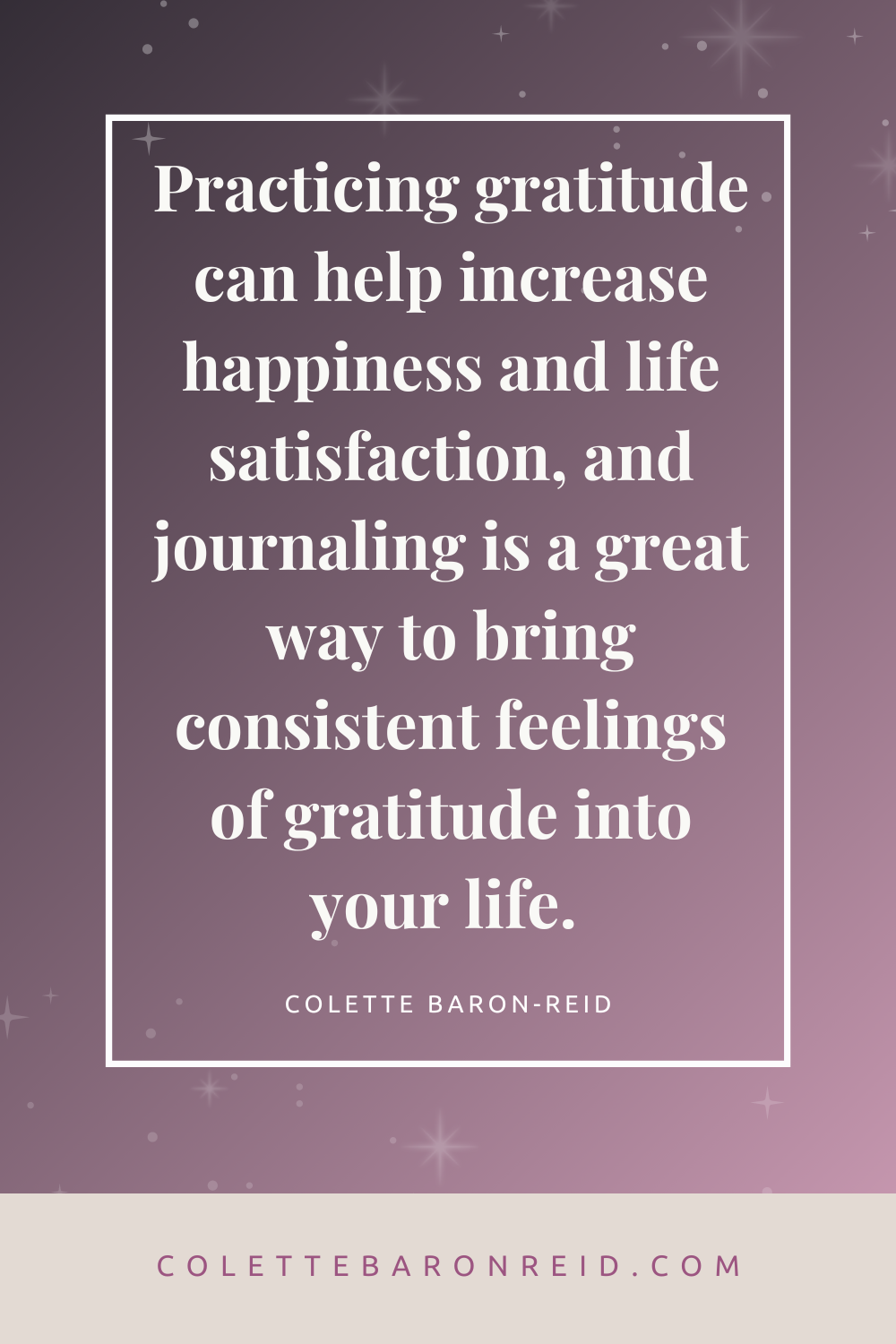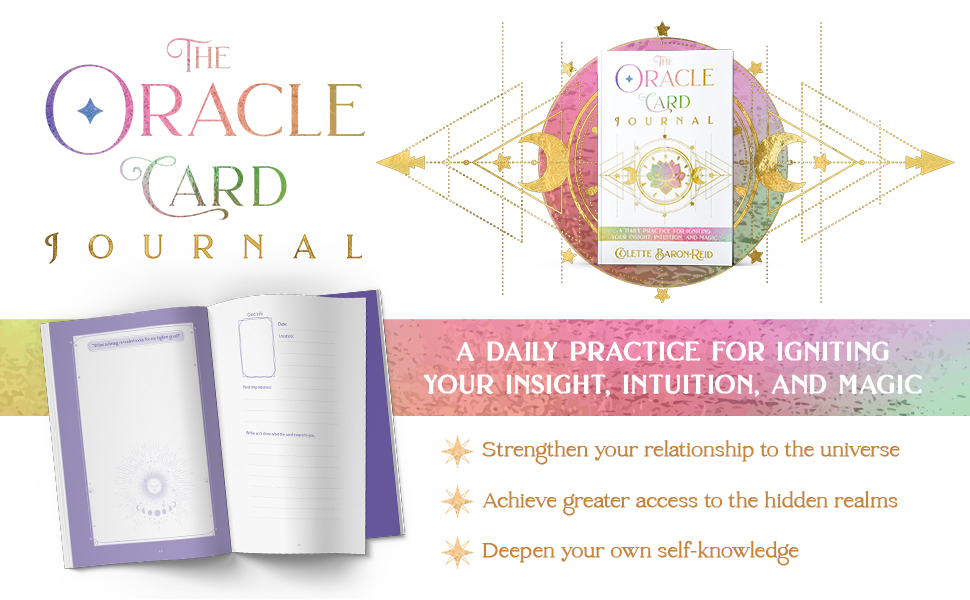One of my all time favorite practices for self-discovery and personal transformation is journaling.
From the release of emotions, to getting clear about what we want and don’t want, to getting more connected to our inner knowing – the benefits of journaling are virtually endless!
I’ve had a consistent journaling practice for over 36 years, and I love sharing the power of this simple practice with others. However, people sometimes tell me that they struggle with how to journal because they believe it captures the negative things that happen in their lives.
I had one woman even tell me she stopped journaling after 20 years because one day she looked at the large box of used journals in her closet and saw it as a “treasure chest of gloom and doom” – her words not mine!
I can certainly understand that perspective, but only if you limit your journaling to releasing and not learning from your experiences.
Journaling can serve as a good way to get those negative thoughts and feelings up and out, but it also offers us a valuable opportunity to learn from our experiences and choose NEW thoughts, beliefs, and feelings.
I share more about why I love journaling and some of my best practical advice for a fulfilling journaling practice in this episode from my podcast, INSIDE THE WOONIVERSE.
How to start a journaling practice
If you’re just dipping your toes into journaling and you’re wondering how to destress with a journaling practice or how to get started in the first place, it doesn’t have to be complicated! 
Journaling is a great way to access your creativity, connect with your inner self, and find valuable insight from your past experiences.
I created a free guide to help anyone who wants to experience the benefits of a journaling practice. You can get the free How to Start Journaling Guide here.
When it comes to journaling, the more consistent you are, the greater the results you’ll see. Why not commit to daily journaling for a couple of weeks and notice what changes you see in your life?
Daily journaling for a calm mind
One of the greatest benefits of a journaling practice is the fact that it’s one of the most relaxing things to do. Journaling can help you achieve a calm mind and find a sense of peace and groundedness. It’s also a great way to release anything that isn’t serving you anymore.
As you sort through your emotions and write out your struggles, you generate a lot of trash – those thoughts and feelings that don’t serve your well-being but, instead, keep alive your negative beliefs and painful emotions from the past.
It’s human nature to want to get out all of our anger, sadness, and fear and speak your truth, however ugly it may be.
It’s also important to let go of the harsh feelings and judgments and focus on what you have learned and how you’ve grown. You can set up a regular practice of reviewing your journal weekly or monthly to help with this process.
Dumping Grounds Journaling Exercise:
1. As you reread what you wrote when you had negative thoughts and emotions, think about how much weight you gave them in the moment and how much they have right now. Does it seem like a lot of drama about something minor? Did you invest emotional energy in a situation or a thought or emotion that you now see really wasn’t important?
2. During this process, use a colored highlighter to mark any passages that are gems: insights that have value and can serve you in the future. You might cut these out or rewrite them in another journal you will keep and look back on.
3. Now, as you look at the passages you want to release, say aloud, I release these thoughts and feelings with love and compassion for myself and everyone. Imagine they are being taken to a garbage dump to fertilize something better. You can even rip up those parts of your journal entries or burn them. Take a moment to feel a sense of relief at having dumped the garbage.
4. Next, go back to the passages you highlighted and create a “solutions and insights” journal where you reflect on the lessons you’ve discovered. When you write about your insights and the treasure you’ve found, you’ll be better able to track your real growth and progress, and less likely to sabotage yourself.
If you struggle with feeling stuck while journaling and you don’t know what to write about in your insights and solutions journal, listen to this clip from my podcast, INSIDE THE WOONIVERSE about how I approach feeling stuck in my journaling practice.
[embedded content]
How to get rid of stress with journaling

The practice of “taking out the garbage” through journaling can certainly help reduce stress and bring more calm into your life.
Another favorite practice for calming the mind and feeling more grounded and happier is a gratitude journal!
The great thing about this type of journaling is that it’s simple and effective. You don’t need gratitude journal prompts, all you need is to do a little reflecting on the aspects of your life that you feel grateful for.
Practicing gratitude can help increase happiness and life satisfaction, and journaling is a great way to bring consistent feelings of gratitude into your life.
When you write down the things you’re grateful for, be sure to take a moment to really feel the gratitude in your heart. Reflect on how many things in your life you once prayed and wished for, and thank Spirit for your beautiful life.
Journaling with Oracle Cards
One of my all time favorite tools for deepening my journaling practice and using it to feel more connected with my inner guidance system is Oracle Cards.
When you combine Oracle Cards and journaling, the potential for personal transformation is incredible.
In just a few weeks, I’ll be releasing, The Oracle Card Journal: A Daily Practice for Igniting Your Insight, Intuition, and Magic.
This illustrated journal will take you through a 40 day process to connect with the Universe and your own inner wisdom through a daily practice of pulling Oracle Cards and journaling.
If you’ve been looking for a way to feel more connected to your intuition and the Universe, and to experience less stress and more calm, click here to pre-order your journal today.

Do you keep a journal? Share with me!
Share in the comments your current journaling practice, or what blocks you’ve encountered with journaling. I love reading your comments!


Leave a Reply
You must be logged in to post a comment.